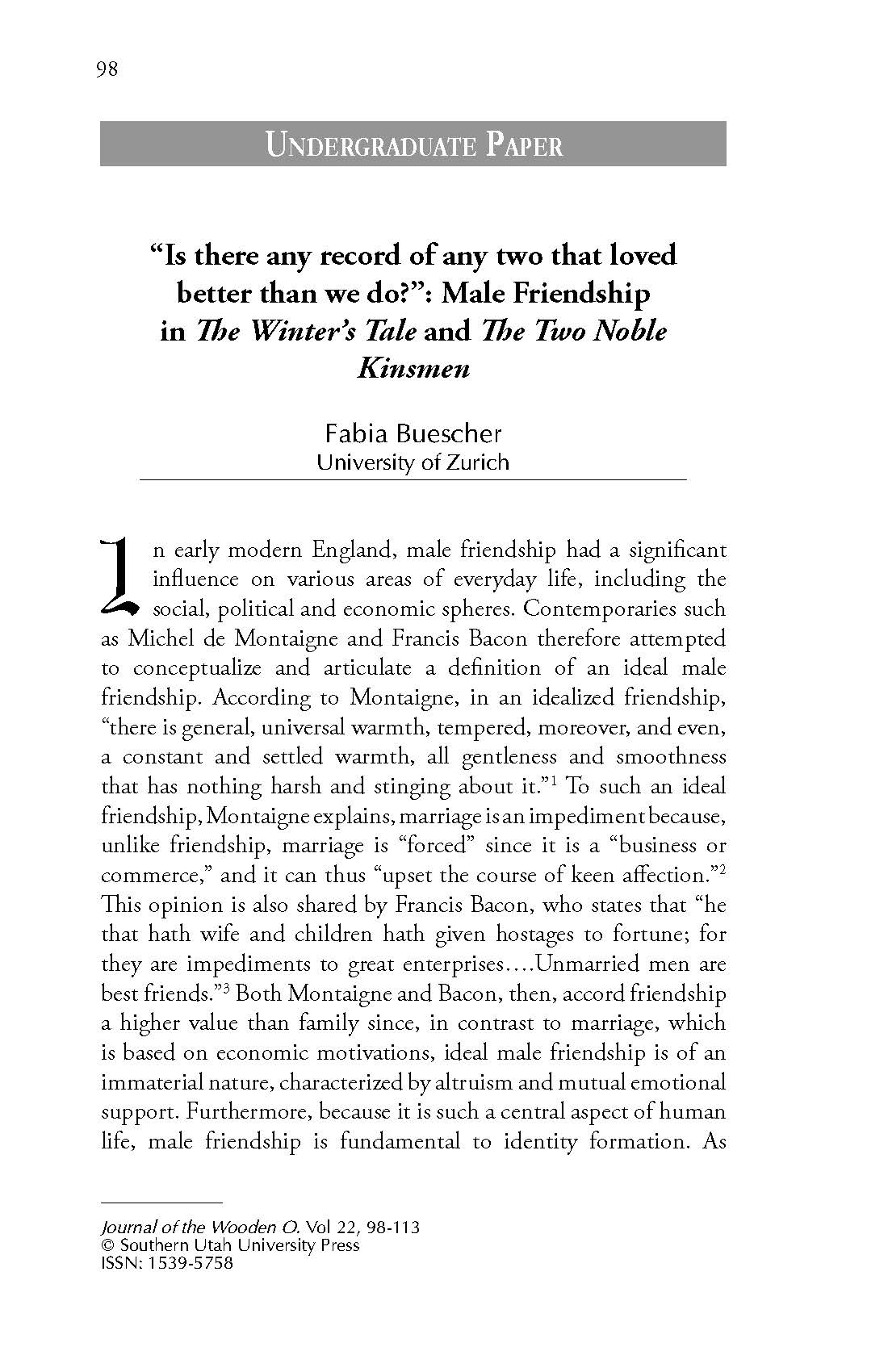"Is there any record of any two that loved better than we do?" Male Friendship in The Winter's Tale and The Two Noble Kinsmen
Main Article Content
Abstract
In early modern England, male friendship had a significant influence on various areas of everyday life, including the
social, political and economic spheres. Contemporaries such as Michel de Montaigne and Francis Bacon therefore attempted to conceptualize and articulate a definition of an ideal male friendship. According to Montaigne, in an idealized friendship, “there is general, universal warmth, tempered, moreover, and even, a constant and settled warmth, all gentleness and smoothness that has nothing harsh and stinging about it.”1 To such an ideal friendship, Montaigne explains, marriage is an impediment because, unlike friendship, marriage is “forced” since it is a “business or commerce,” and it can thus “upset the course of keen affection.”2 This opinion is also shared by Francis Bacon, who states that “he that hath wife and children hath given hostages to fortune; for they are impediments to great enterprises….Unmarried men are best friends.”3 Both Montaigne and Bacon, then, accord friendship a higher value than family since, in contrast to marriage, which is based on economic motivations, ideal male friendship is of an immaterial nature, characterized by altruism and mutual emotional support. Furthermore, because it is such a central aspect of human life, male friendship is fundamental to identity formation. As Montaigne states, friends “mingle and blend so completely into one another, in so complete a mixture, that they efface the seam between them.”4 Such a Humanist understanding of ideal male friendship thus suggests a spiritual conceptualization, in which friends figuratively merge into one another and, in this way, share and determine each other’s identity, dissolving the boundaries of selfhood. As a result of this spiritual union, friendship not only affects individual identity, but it also shapes all other bonds, including romantic, social and political relationships.5 Idealized male friendship is thus universally potent.
